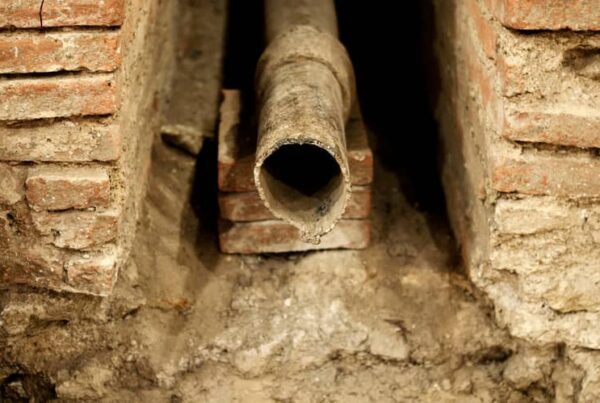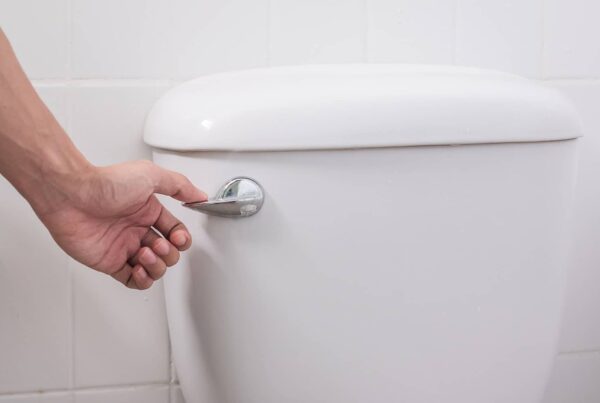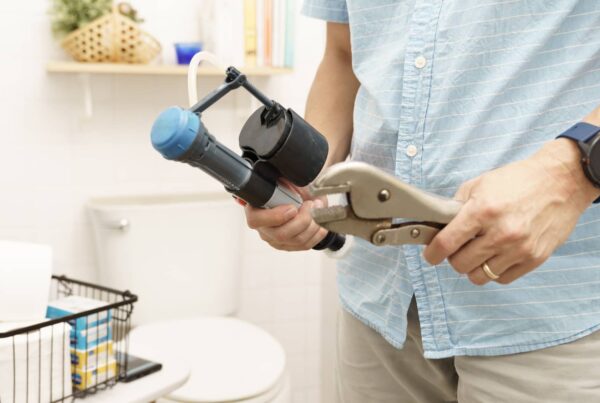
A water hammer could be a startling event and cause damage to your home if a pipe were to burst. However, it can be a relatively easy repair depending on your circumstances.
Let’s dive into what exactly is water hammering, the causes, and how you can fix your water hammering.
What Is Water Hammering?
Water hammering is basically a surge in water pressure when a valve is suddenly closed. In the most common occurrence in your home, a washing machine may require a lot of water, but then turn off the water supply. When the washing machine turns off the water supply, water must suddenly stop, bump into itself (including the pipe walls), and there’s a spike of water pressure.
Ultimately, the spike of water pressure can create a loud banging when pipes vibrate from the pressure and hit against your walls.
Water hammering can cause a pipe to burst due to the sudden increase in water pressure. Fortunately, though, water hammering can be fixed. Let’s look into the exact causes of water hammering first.
If you want more of an explanation, this video does the job.
Causes of Water Hammering
Water Hammering can be caused by one or more of the many factors below.
High Water Pressure
When water pressure is too high, water hammering is frequent. When highly pressurized water is forced to stop, the high pressure builds higher, leading to the water hammer.
Certain Appliances
Some appliances like the dishwasher, fridge, or washing machine can cause water hammer by drawing a lot of water at one time, then quickly shutting off the water supply.
Loose Pipes
Some flexibility in water lines helps mitigate water pressure and water hammer. On the other hand, loose pipes can bang into walls causing a louder water hammer.
Old Plumbing Systems
Older plumbing systems can cause water hammering when the system does not have today’s plumbing standards. Things like water hammer arrestors, bladder tanks, and pressure relief valves help mitigate water hammering.
How To Fix Water Hammering
From the causes noted above, we will look into solutions for each so you can solve your water hammering issue.
Water Pressure Regulators
Regulating water pressure can prohibit high water pressure from entering your plumbing system from the start and help stop water hammering.
Learn more about water pressure regulators from one of our blogs.

Water Hammer Arrestors
Water hammer arrestors are little pockets of air compressed by water when the pressure suddenly increases. In a water hammering example, rather than having your pipe rattle within your wall, water would instead press against the air in the arrestor and lower water pressure.
These water hammer arrestors are frequently installed near appliances like dishwashers and washing machines. However, you can install them near the source of your water hammering.
You can purchase these through Amazon or your local hardware store. Be sure to purchase the right size for your pipe!

Air Chambers
Air chambers can be installed in your home to allow an extra space for water to flow when the pressure increases like a water hammer arrestor and a water heater bladder tank.
Water Heater Bladder Tanks
Water heater bladder tanks can help alleviate some pressure in your pipes. As water temperature increases, water pressure increases. Therefore, by installing a bladder tank (basically an air chamber) above your water heater, you can stop water hammering.

Pressure Relief Valves
Pressure relief valves operate typically through an internal spring. When pressure exceeds the spring’s tension, a valve is opened, allowing water to empty the plumbing system.
On newer homes, these are typically installed in the backyard at the home’s exterior, on a faucet.
Secure Loose Plumbing
Lastly, if you have loose plumbing in your walls, you should secure it to the wall studs. Securing plumbing will stop pipes from banging against the walls.
Final Thoughts
Water hammering could be loud and cause a lot of destruction if a pipe were to burst from the pressure build-up. That’s why we report about water hammering in our home inspections.
Homeowners can solve water hammering by adding a few upgrades to their plumbing systems to help mitigate increases in water pressure when valves are suddenly closed.
If you have additional questions, comment below and we would be happy to assist!



